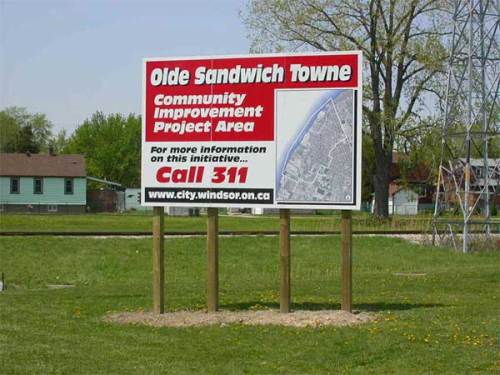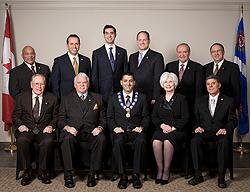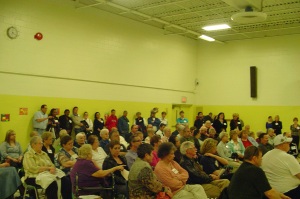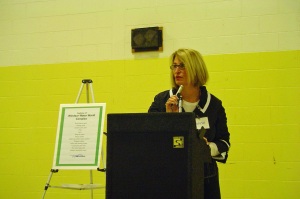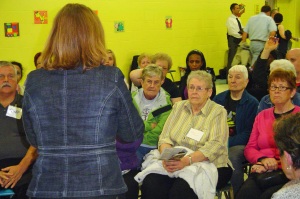Sycophant: “a servile self-seeking flatterer”
In a June 15th Windsor Star article, Chris Vander Doelen did a marvelous job of portraying Conservative MP for Essex Jeff Watson as a working class hero. In reality, Mr. Watson is a middle class sycophant to power and a traitor to his working class roots.
Mr. Watson’s very real struggles to ‘get ahead’ are repeated millions of times by working class people around the world. According to Vander Doelen, Watson plugged away at multiple jobs at minimum wage and finally made it to a unionized Chrysler Canada assembly line with a living wage. All the while he struggled to pay tuition for a degree in history and help raise a family while his wife also worked. Watson had his eyes on something other than an assembly line job for the long term. Like Watson, all workers’ desires are determined by complex social, political and economic forces. Workers are usually in the position of reacting to these forces with precious little opportunity to influence them proactively. For hundreds of years workers have struggled to extract wealth from the capitalist class at great peril requiring enormous sacrifice. Today we all still reap the dwindling social rewards of those struggles; however, the past thirty years or so have seen the dismantlement of the accommodation between capital and workers manifested in free trade deals after the collapse of the Soviet Union. A new global order emerged featuring the primacy of corporate personhood, and workers have not yet been able to effectively reorganize to confront and challenge it. The current economic regime places global ‘free’ trade and competition as the top priorities which in turn have devastated the manufacturing sector in Windsor and Detroit, and not because we lack the competitive drive – on the contrary; the work was simply taken away. What working people lacked was the political and economic power to confront the new global order which specifically excluded labour. Our slow transmutation from working class to middle class overshadowed the knowledge of our own history. We forgot the struggles but the capitalist class never has.
What workers did get out of the new global order was a snow job called the ‘knowledge economy”, a murky concept that generally translated into getting more education – a move that made sense on the surface in a time of massive down-sizing (which became “right-sizing” and could now be referred to as ‘capsizing’) since living wage work was disappearing. What has the knowledge economy produced? Mathematicians creating derivative trading and a global financial collapse, and an MP history major with no sense of history. In the meantime, Canada cannot produce enough skilled tradespersons who actually make things we need. Don’t misunderstand: more education is always a good thing; just not when it is sold by those who know that under their plan there will never be enough meaningful, well paid work to go around – there must always be a pool of surplus labour in a capitalist system.
That Mr. Watson could get a job at even $9 an hour was thanks to the efforts of thousands of workers who campaigned and agitated for an increase in the minimum wage. That Mr. Watson could find a unionized factory job with a living wage is because workers, through their union, fought for decades to gain a living wage and improve working conditions. But does Mr. Watson understand at all the context of these tumultuous times? Apparently not. When he made the admirable decision to enter politics, he chose or was recruited to run as a conservative under Stephen Harper, a leader who has made it abundantly clear he will dismantle every social, political and economic tool workers have to defend and improve our interests. Already, it appears too many working class people will never make it to a job with a living wage, never be able to raise a family because of that, and will remain stuck in low wage and precarious work with shamefully weak provincial labour laws.
On top of this, the stage is set for ugly social unrest as Watson’s boss has set into play a wage regime that will see migrant workers earn 15% less than Canadian workers, as all workers start to compete for ever scarcer jobs. Has Watson used his working class experience to speak out to his leader that if present trends continue all workers will suffer further and so also civil society? He has been silent. The Omnibus budget bill, itself a crime against the democratic process, will make it harder to retire, harder to collect Employment Insurance, harder to protect the environment, and harder to regulate corporations – in short harder to be a worker. Mr. Watson stood in the House of Commons, and while other MPs stood against the obvious injustice that was the “budget” bill, gladly did what his masters told him to do and voted against everything that got him to the House of Commons. Mr. Watson is more than an embarrassment. He is a sycophant to a regime bent on making Canada a hell hole for workers and a ‘free-for-all’ trade zone for corporations wanting to enrich themselves with Canadian resources: resources that belong not to them, but to the people of Canada, with a special emphasis on First Nations.
John Lennon sang that “… a working class hero is something to be” in a song that decried the slow and easy transition of workers into the illusion of the middle class. A working class hero Watson is not and rather than celebrate him, he should be roundly denounced for the class traitor that he is.


